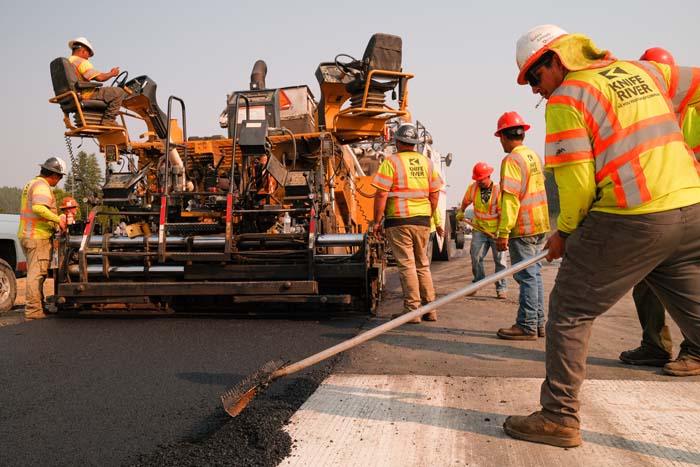Geocaching, started in Oregon, marks 10th anniverary
Published 3:47 pm Friday, April 30, 2010
MEDFORD (AP) – A decade after the first geocache was stashed
outside the Oregon community of Beavercreek, enthusiasts of this
high-tech scavenger hunt have multiplied the game by more than a
million.
Geocaching’s 10th anniversary couldn’t be observed without adding to the 1,049,636 active caches recorded worldwide.
Geocachers in southern Oregon have planted at least a half-dozen new
ones near Ruch alone to tempt participants in their Saturday
celebration at McKee Bridge, where the most prolific geocachers will be
honored and everyone can relive the best ”finds.”
To start geocaching, one needs only a global-positioning system and access to the Internet. Log onto www.geocaching.com to search caches within several miles of a particular ZIP code or enter a set of coordinates for longitude and latitude. Print out or download the information onto a high-end GPS, palm pilot or iPhone and let the hunt begin.
Geocachers generally hide caches on public land to avoid trespassing on private property, and they attempt to keep clear of ”muggles,” or non-geocachers who may take note of the cache and later try to find or dispose of it. Some areas, such as national parks, have banned geocaching in order to keep the land pristine.
While some view geocaching as a form of littering, there is an effort within geocaching circles to improve the pastime’s environmental image and diminish its impact on the natural landscape. However, geocachers aren’t above disguising a cache as trash, such as bottle caps that cover plastic tubes planted in a hole in the ground.
”It’s a real prestige who has the most,” says 56-year-old Debbie Davenport, who organized the event.
But anyone with a handheld global-positioning system unit can start racking up finds, often within just a short walk from their own front door. That’s how Davenport got started more than two years ago with her first find near Central Point’s Dollar Tree store, pinpointed by the official geocaching website.
Davenport has since used her GPS unit a Christmas gift intended to help her navigate woodland trails to find and place geocaches all over the region.
”It was a good reason to get outdoors,” she says. ”We love to geocache by horseback.”
While rural areas host their fair share of geocaches, the pastime has penetrated urban landscapes. About 200 caches can be found within a 5-mile radius of downtown Medford, according to geocaching.com. Many are ”nano-caches,” perhaps no more than an inch long and affixed with magnets to common city features, such as light poles and street signs.
”The ones in town are a lot harder to find,” Davenport says. ”The ones out in the woods are usually a lot bigger.”
Larger caches commonly contained in plastic containers or metal ammunition boxes usually contain trinkets, along with a logbook. Etiquette dictates that if finders take something out of the cache, they put something back in.
As the Internet’s influence on geocaching has grown over the years, trackable ”travel bugs” and ”geocoins” have become the most desirable loot. Stamped with unique sequences of numbers, these items can be tracked across the world as geocachers move them from one stash to the next, recording those locations online.
Darrell Potter, 46, of Grants Pass planned to ”move along” some geocoins in several stashes he planted this week. But leaving behind real foreign currency is a habit that helps identify him to other local geocachers.
”A lot of the younger kids who geocache with their parents are now collecting these foreign coins,” says Potter.
Potter purchased ”a slew” of the virtually worthless coins from a local jeweler for his 15-year-old son, Ethan, who didn’t show much interest in collecting them. But they seemed perfect tokens for the family’s geocaches. Two years after Potter tapped his son and 46-year-old wife Kerri to geocache, foreign coins are the calling card of ”Team Trekkerz.”
”Before we knew it, every weekend, we were going out,” Potter says.
”We’ve found almost 600 caches,” he adds. ”A thousand is our next target.”
Potter wants to make a pilgrimage to the original geocache a ”George of the Jungle” videotape, Ross Perot paperback, cassette recorder and slingshot that Dave Ulmer planted in a bucket on May 3, 2000. The stunt followed President Bill Clinton’s order to cease ”selective availability” of GPS satellite coordinates, inaccurately beamed to the public in the interest of military operations. Clinton’s decree instantly improved the accuracy of GPS and spawned the sport that lures millions of geocachers to precise intersections of latitude and longitude.
Beyond pinpointing their position on the globe, geocachers’ 21st-century pursuit often takes them back in time. A recent geocaching trip transported Potter to the Josephine County ghost town of Waldo, with its pioneer cemetery, which he never would have visited otherwise.
”Geocaching’s a great way to learn local history,” Potter says.






